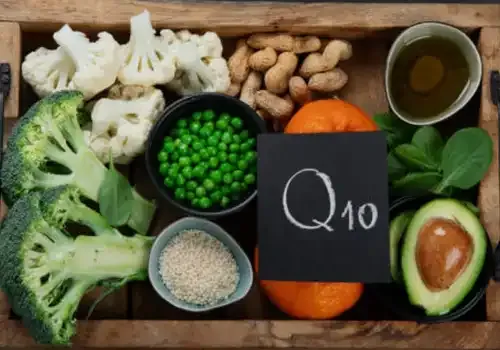Coenzyme Q10, also known as CoQ10, is a remarkable molecule that plays a crucial role in energy production within the cells of our body. This essential coenzyme is found in every single cell, particularly within the mitochondria, the powerhouse of the cell. CoQ10 acts as a helper molecule in the production of adenosine triphosphate (ATP), the energy currency of our cells. Additionally, it stabilizes cell membranes and prevents the leakage of electrons, akin to a battery's energy loss through a leak.
The Significance of Coenzyme Q10
In understanding the significance of coenzyme Q10, it's essential to explore the effects of certain medications, such as statins, which can block its formation. Statins are commonly prescribed to lower cholesterol levels, but they can also have unintended consequences. The inhibition of coenzyme Q10 synthesis by statins may lead to a condition called statin-induced myopathies. Symptoms of myopathies include muscle pain, weakness, and exercise intolerance.
Supplementing with coenzyme Q10 can have profound effects on energy levels and exercise performance. It increases energy production in muscles, reduces fatigue, and improves oxygen utilization during exercise. Consequently, individuals with congestive heart failure may benefit from coenzyme Q10 supplementation as it has been shown to decrease hospitalizations and improve cardiac function.
The Role of Coenzyme Q10 in Cardiovascular Health
Coenzyme Q10's association with cardiovascular health extends beyond its energy-boosting properties. It is transported throughout the body via low-density lipoprotein (LDL), commonly known as "bad" cholesterol. LDL acts as a shuttle, delivering coenzyme Q10 to various tissues. Furthermore, coenzyme Q10 acts as an antioxidant, preventing the oxidation of LDL and promoting arterial health.
Dietary Sources of Coenzyme Q10
While coenzyme Q10 is naturally produced in the body, certain foods are rich in this essential coenzyme. Heart muscle contains the highest concentration of coenzyme Q10 among all organs, making it a valuable dietary source. Unfortunately, heart muscle is not commonly consumed by most people. However, grass-fed heart can be obtained, or coenzyme Q10 supplements derived from heart tissue can be considered.
In addition to heart muscle, other organ meats such as kidney and liver are also good sources of coenzyme Q10. Certain fish, such as salmon and sardines, contain substantial amounts of coenzyme Q10. Even extra virgin olive oil contains this valuable coenzyme, making it a beneficial addition to the diet.
Enhancing Coenzyme Q10 Absorption and Availability
It is worth noting that the bioavailability of coenzyme Q10 can be limited. Traditional coenzyme Q10 supplements may only have a 5% absorption rate. However, there are more bioavailable forms available, such as ubiquinol. Ubiquinol is a reduced form of coenzyme Q10 that offers improved absorption. When selecting a coenzyme Q10 supplement, it is essential to choose a high-quality source that maximizes absorption.
Factors Affecting Coenzyme Q10 Levels
Several factors can influence coenzyme Q10 levels in the body. The normal aging process often leads to a decrease in coenzyme Q10 production, potentially contributing to age-related health issues, including cardiovascular problems. Additionally, deficiencies in certain vitamins and cofactors can lower coenzyme Q10 levels. Adequate intake of vitamin C, vitamin B6, folate, and alpha-lipoic acid is essential for optimal coenzyme Q10 production. Conditions that affect mitochondrial function, such as diabetes and Alzheimer's disease, can also diminish coenzyme Q10 levels.
Harnessing the Power of Coenzyme Q10
Coenzyme Q10 offers a multitude of benefits beyond its role in energy production and cardiovascular health. It has been found to support brain function, enhance exercise performance, and aid in the repair and maintenance of various organs. However, it is important to consult with a healthcare professional before starting any supplementation regimen.
In conclusion, coenzyme Q10 is a powerful molecule that plays a vital role in energy production and overall health. While its availability in food sources may be limited, supplements can provide a convenient way to ensure adequate intake. By understanding the significance of coenzyme Q10 and optimizing its absorption, individuals can unlock enhanced vitality and well-being in their lives.
Additional Information: Coenzyme Q10 is also commonly referred to as CoQ10. It is a fat-soluble compound that is naturally produced in our body. Coenzyme Q10 levels tend to decline with age, making supplementation particularly important for older individuals. The primary function of coenzyme Q10 is to facilitate the conversion of food into energy within the mitochondria. It also acts as an antioxidant, protecting cells from damage caused by free radicals. Coenzyme Q10 has been studied for its potential benefits in various conditions, including heart disease, migraine, and Parkinson's disease.

